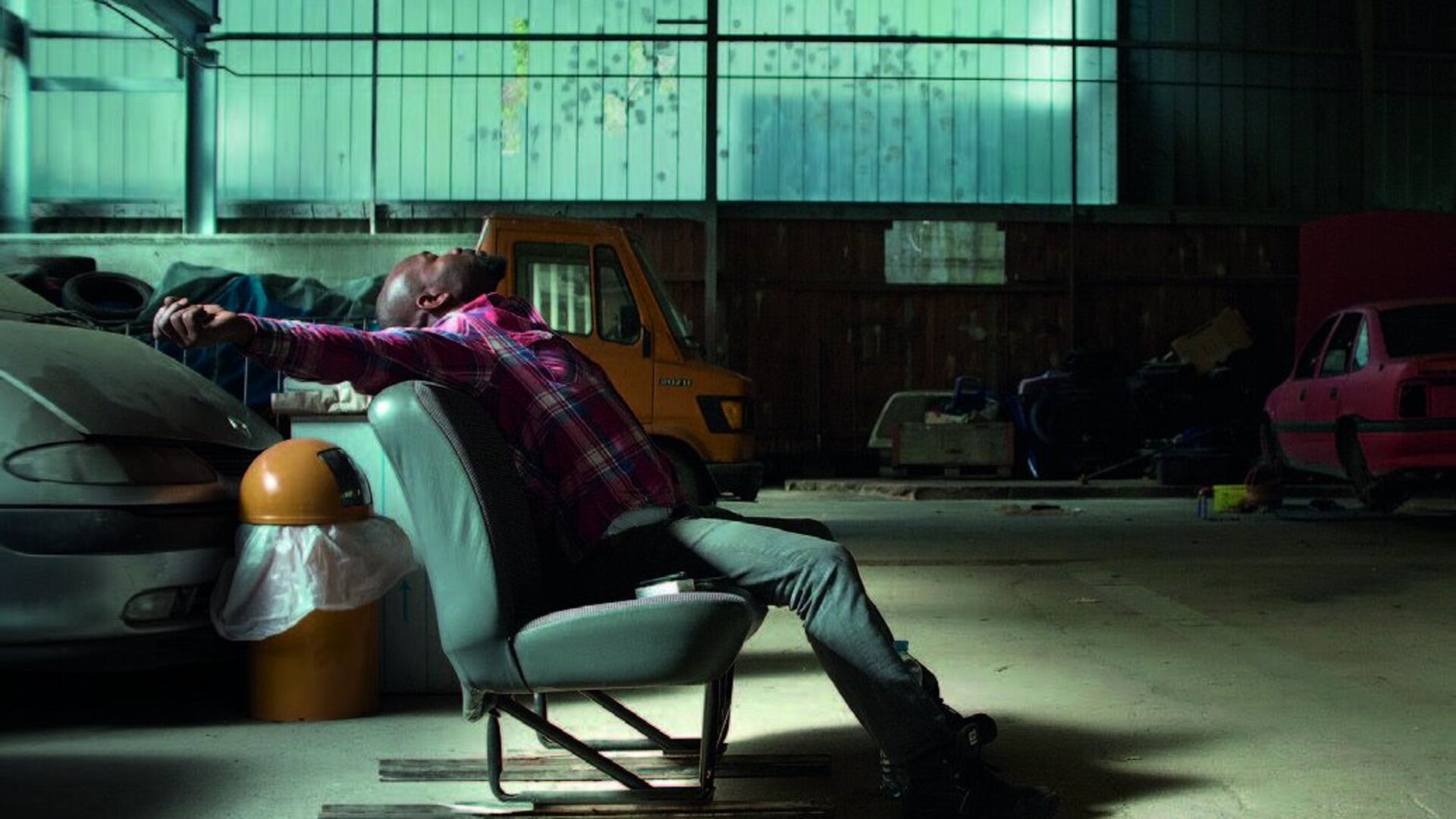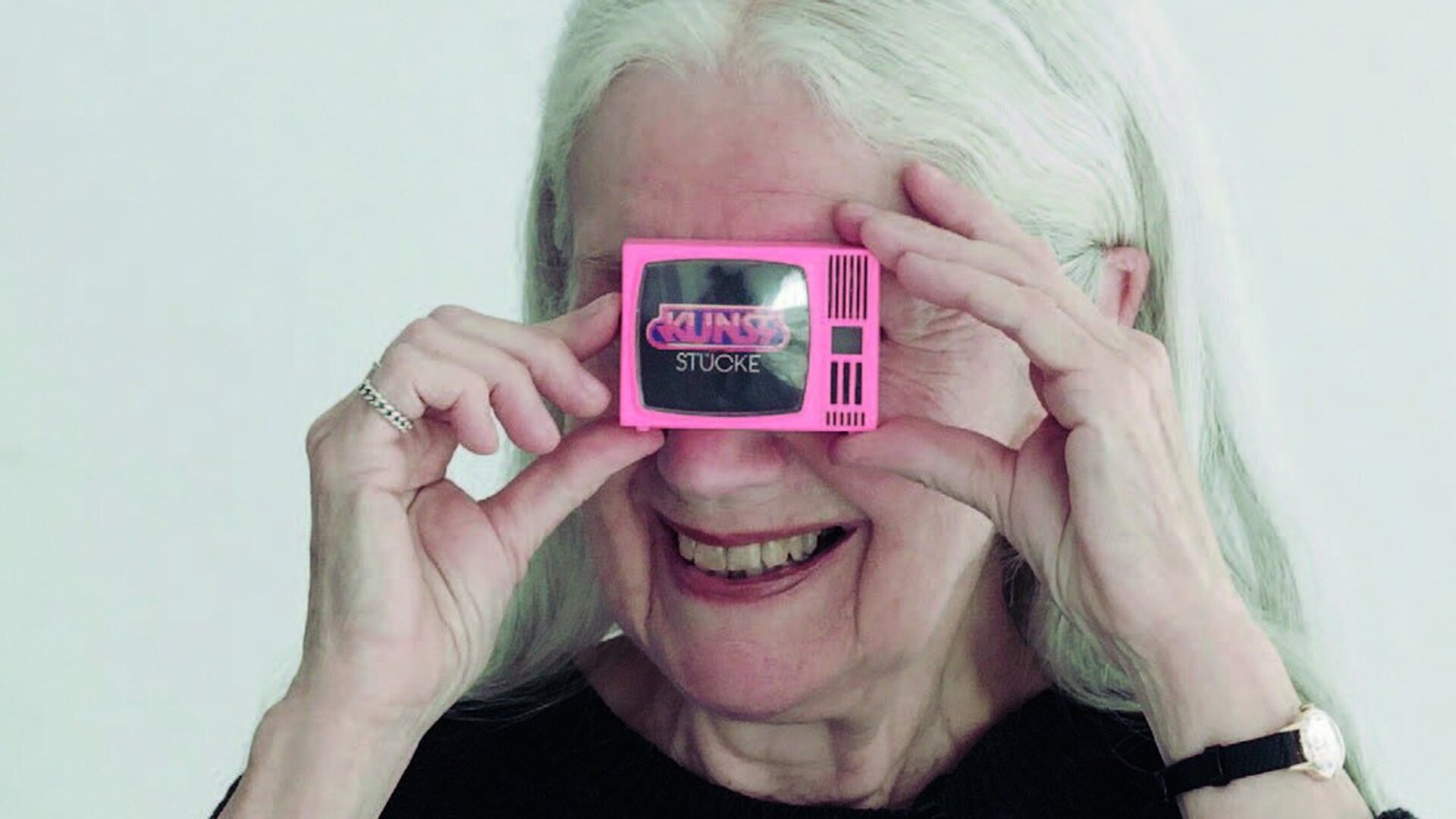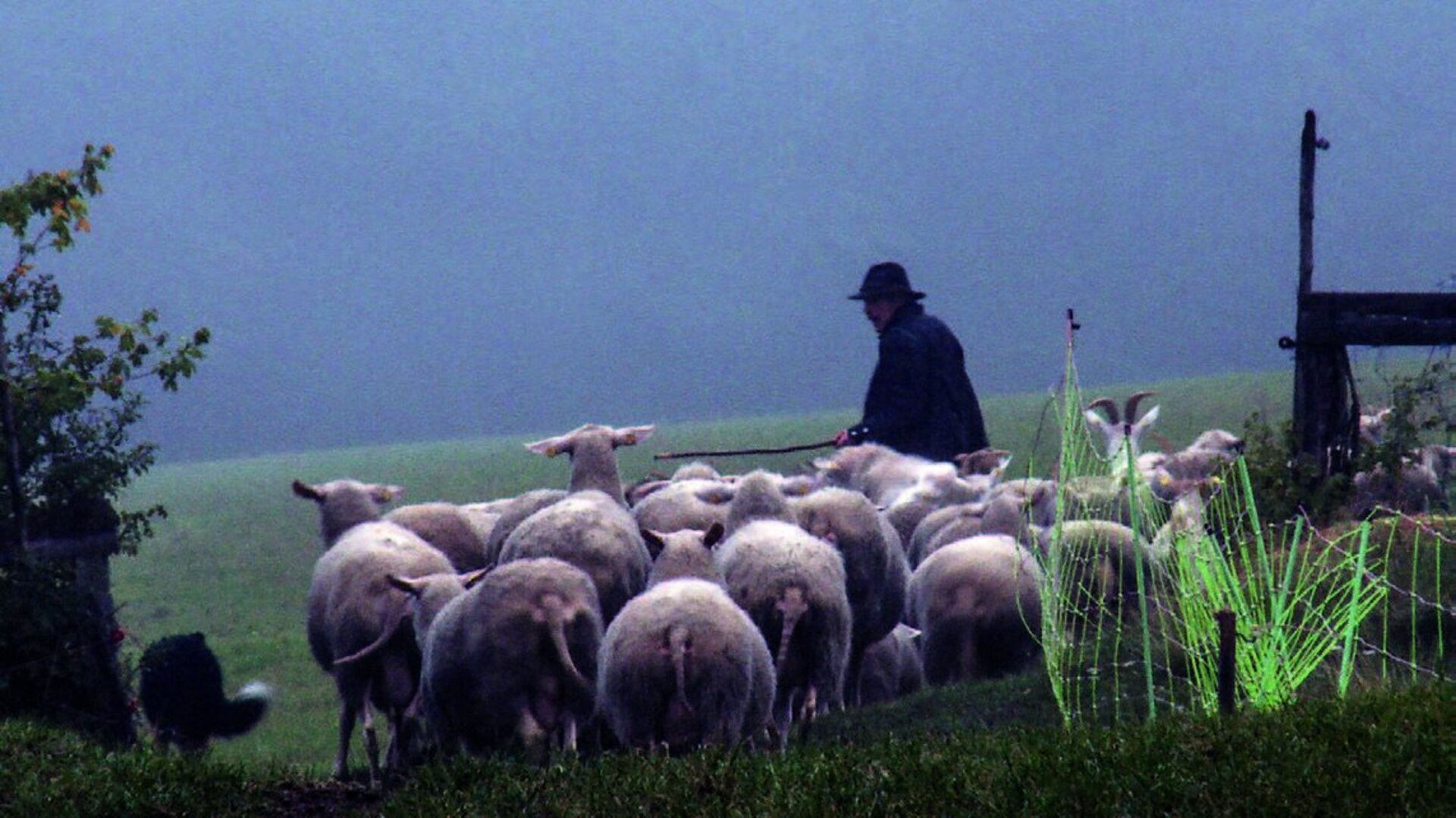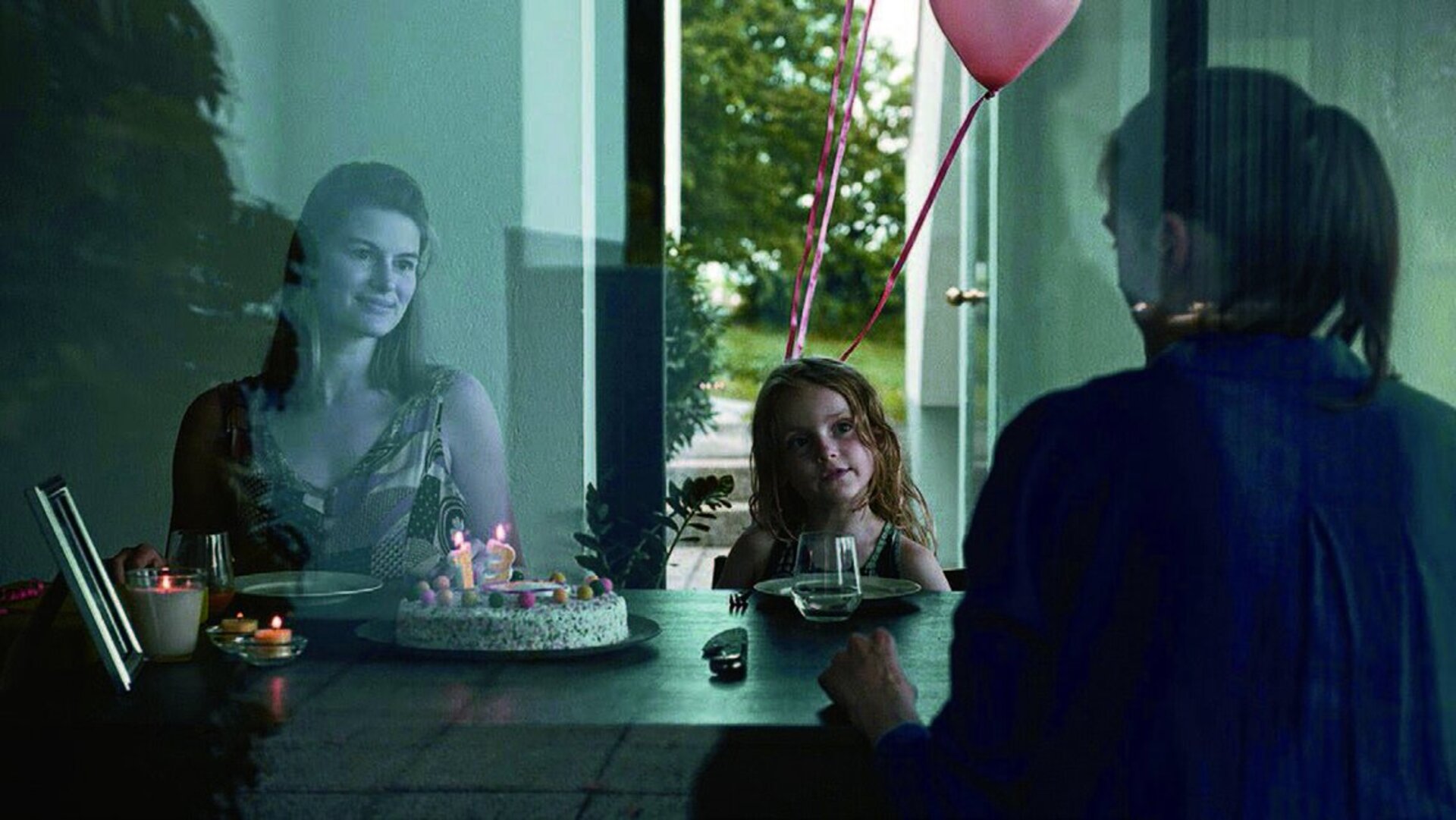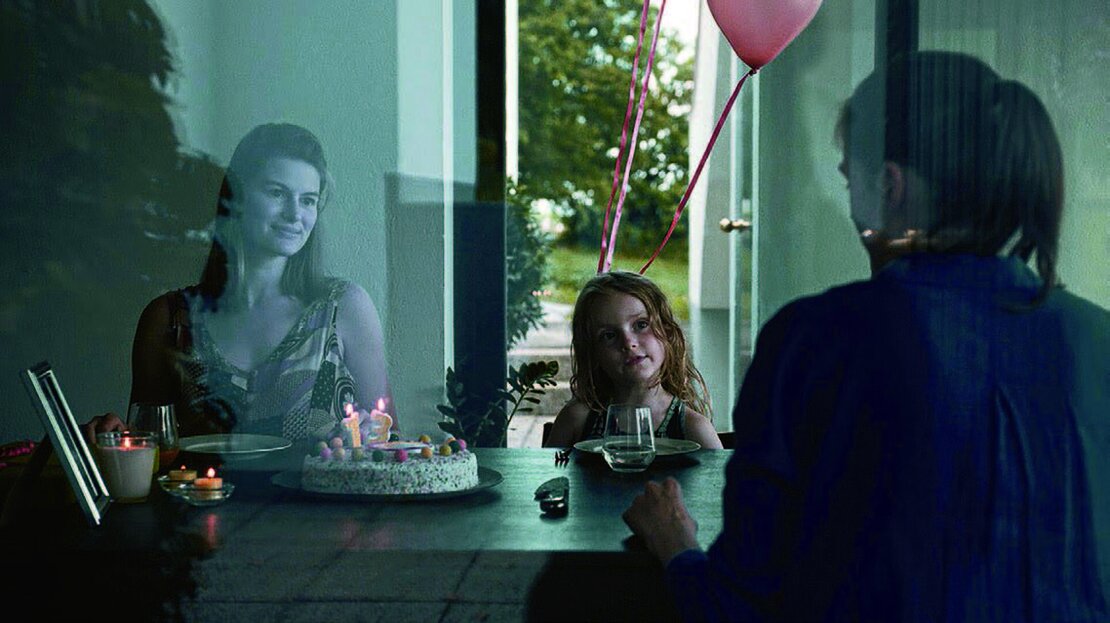The main prize as “Best Feature Film” for the director Sara Fattahi who lives in Vienna, is a surprise at least for me, because in this film the boundaries between what I understand as a feature film with a recognisable plot and a documentary, or a feature documentary for that matter, become blurred. Fattahi, who studied law in Damascus and holds a degree from the Fine Art Institute Damascus, shows in "Chaos" three women who deal with the emotional wounds that the war has inflicted on them in different ways in different places, such as Syria, Sweden and in Vienna, whereby the woman in Vienna is obviously the director herself.
Fattahi photographed the film herself; the production company Little Magnet Film, which is currently finishing Hubert Sauper's latest documentary "Epicentro", received the "small" grants from the Federal Chancellery and the City of Vienna in Austria and some funds from the Middle East. In Locarno, "Chaos" was awarded the Golden Leopard in the section for contemporary filmmakers, the "Cineastidel Presente".
In my opinion "The Remains - After the Odyssey" was also for sure an option for the "Best Austrian Documentary" award. The director Nathalie Borgers is no stranger. Born in Belgium, she has been living in Vienna since 2009 and is on the board of dok.at. Her documentary opens up a perspective of the often-quoted Mediterranean route, which does not appear in the public discussion. It’s a story about the victims and those who arrived safely on land but have by no means already survived.
On the island of Lesbos, she follows dedicated helpers who rescue the drowned and make every effort to ensure a dignified burial. In Vienna, she shows a Syrian family that has lost 13 relatives in the sea during the flight and is desperately searching for them. Similar to Nikolaus Geyrhalter's "Bauliche Maßnahme", but with the tragic dimension of death added, political speech bubbles become alive and real in a frightening way.
Jury statement (excerpt): "The film impressively and cinematographical convincingly portrays the pain of a family against the background of one of the greatest humanitarian disasters of the present day. For Klemens Hufnagl this is already the second Austrian prize this year, after he was awarded the Austrian Film Prize for his camera work in the feature film "The Hermits". With similarly calm shots he tells Sebastian Brameshuber's story in "Movements of a nearby mountain" about Cliff, who runs his export business for old car parts and used cars near the Erzberg, preferably with his old home country Nigeria.”
Sebastian Brameshuber: "Cliff leads an existence on the edge of the capitalist system and world trade, where their contradictions and limitations become obvious, but where the enormous attraction emanating from their centre is still the determining force. It is interesting that here, too, the border between feature film and documentary becomes blurred; the catalogue to the Diagonale calls it something between fiction and documentary. In the documentary "She is the other view" Christiana Perschon gathers the artists Renate Bertlmann, Linda Christanell, Lore Heuermann, Karin Mack, Margot Pilz and Iris Dostal in her studio and creates with them, partly on 16 mm black and white film, a collaboration between the filmmaker and the visual artists who were part of the avant-garde and the women's movement in the 70s. "The film structure develops from the encounter with the female artists and their works created in the 1970s: a clash of different media, visual languages and perspectives. My camera and montage work is always about dialogue, the in-between and the role of the camera as an actor in the moment of the shot," explains Perschon, who not only photographed the film herself - she was awarded a Diagonale prize for this - but also directed, designed the set, edited and produced it. By the way, this is also a film without major funding. "She is the other view" celebrated its world premiere at the Viennale and will be in the cinemas starting May 9th.
Arthur Summereder was awarded the prize for "Best Artistic Montage Documentary" for "Die Tage wie das Jahr", a film by Othmar Schmiderer. Schmiderer accompanies Gottfried and Elfie in their everyday life on a deliberately small farm in the Waldviertel. The two consider their animals as living beings and the soil as their own cosmos. Without any explanatory commentary, the film takes the common resource-destroying practice of farming ad absurdum and shows that there is another way. Schmiderer: "It was important to me to find a documentary form of presentation that takes up and deepens these themes again. I would like to tell about the realized life dream of a largely autonomous life in harmony with nature and one's own convictions".
Christian Frosch, whose feature film about the Murer case last year not only opened the festival, but was also the best film on the Diagonale, which was also awarded the Austrian Film Prize "Best Film" in January, also received the Thomas Pluch Script Prize (main prize) at this year's Diagonale. The Franz Grabner Prize, another grand award, went to Ruth Beckermann's "Waldheims Waltz" and Karin Berghammer and Krisztina Kerekes for their TV documentary "Life for Death - People at the Central Cemetery".
A little off the beaten track - the awards for "Innovative Production Achievement", which are traditionally presented to the film or films with the best viewing figures in the previous year. With Eva Spreitzhofer's "Womit haben wir das verdient" (What did we do to deserve this), the awarding of this custom follows, with the small side aspect that Mona Film has thus succeeded in making the transition from TV producer to feature film - Mona Film was "only" a minor co-producer for the film "Arthur & Claire", which was somewhat better placed in the cinema charts. However, the documentary "Manaslu - Mountain of Souls" by the production company Planet Watch, which also received an award in this category, is clearly behind "The Green Lie" by Werner Boote in the cinema charts. As already mentioned, there may be a departure from previous practices here as well.
Two awards for "Angelo" went to Pia Dumont for "Best Sound Design Feature Film" and to Andreas Sobotka and Martin Reiter for "Best Production Design". Two awards as well went to "JOY": Carola Pizzini for "Best Costume Design" and the Acting Award for a remarkable performance by an Austrian actress went to Joy Alphonsus.
